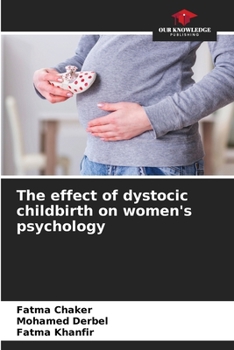The effect of dystocic childbirth on women's psychology
Introduction: Postpartum psychological disorders are common and may be exacerbated after dystocic childbirth. Our objectives were to evaluate factors associated with posttraumatic stress disorder (PTSD), postpartum depression (PPD) and relational aspects after dystocic delivery.Materials and methods: A descriptive and analytical cross-sectional study including 60 women with a dystocic delivery from July to December 2022 at the Hedi Chaker University Hospital in Sfax.Results: PTSD and PPD were noted in 41.7% and 46.7% of cases. Factors associated with these disorders were primiparity (p=0.03), urgent caesarean section (p=0.04), lack of support (p= 0.016), lack of information (p=0.04), obstetric violence (p=0.04), lack of analgesia (0.05) and maternal complications (p=0.04). Sexual problems were reported in 61.7% of cases, and the mother-baby relationship was satisfactory in 80% of cases. Conclusion: Psychological support for patients at risk of mental disorders after dystocic childbirth is necessary, as is birth preparation for pregnant women.
Format:Paperback
Language:English
ISBN:6207616642
ISBN13:9786207616640
Release Date:June 2024
Publisher:Our Knowledge Publishing
Length:64 Pages
Weight:0.23 lbs.
Dimensions:0.1" x 6.0" x 9.0"
Customer Reviews
0 rating





